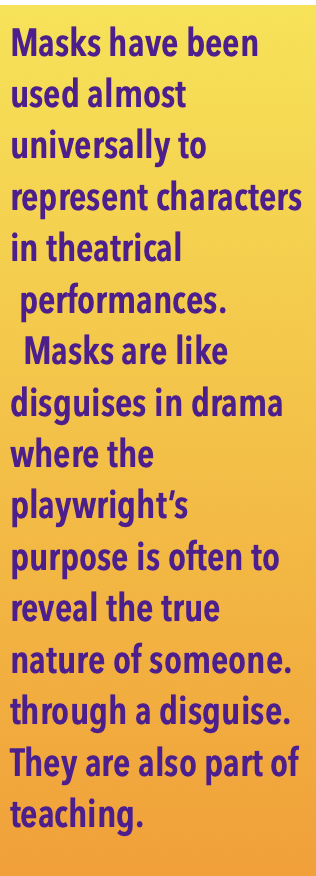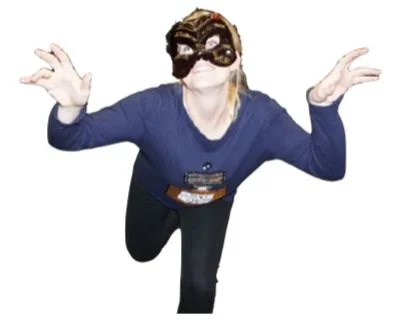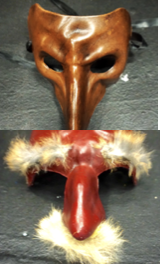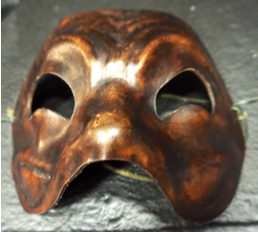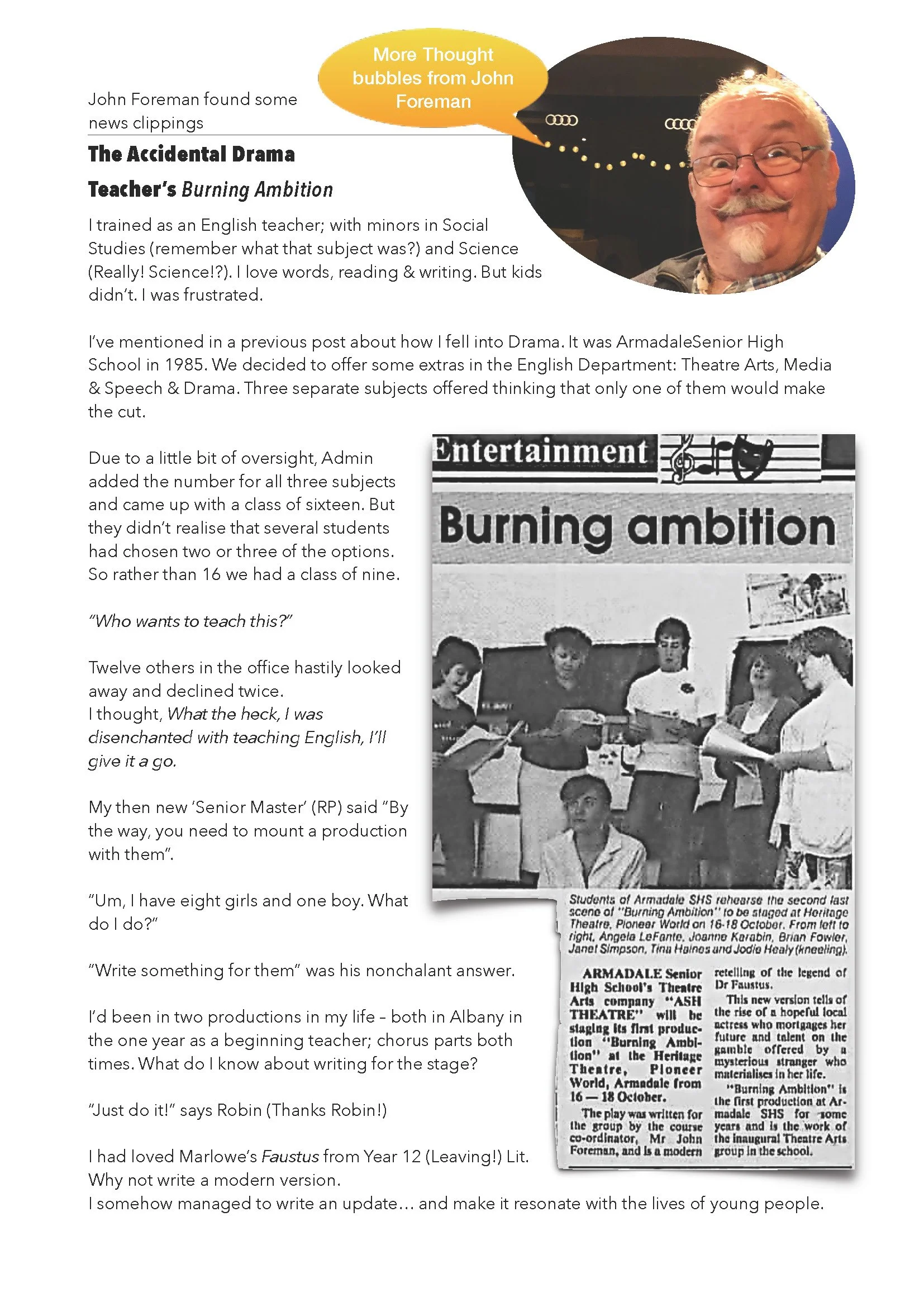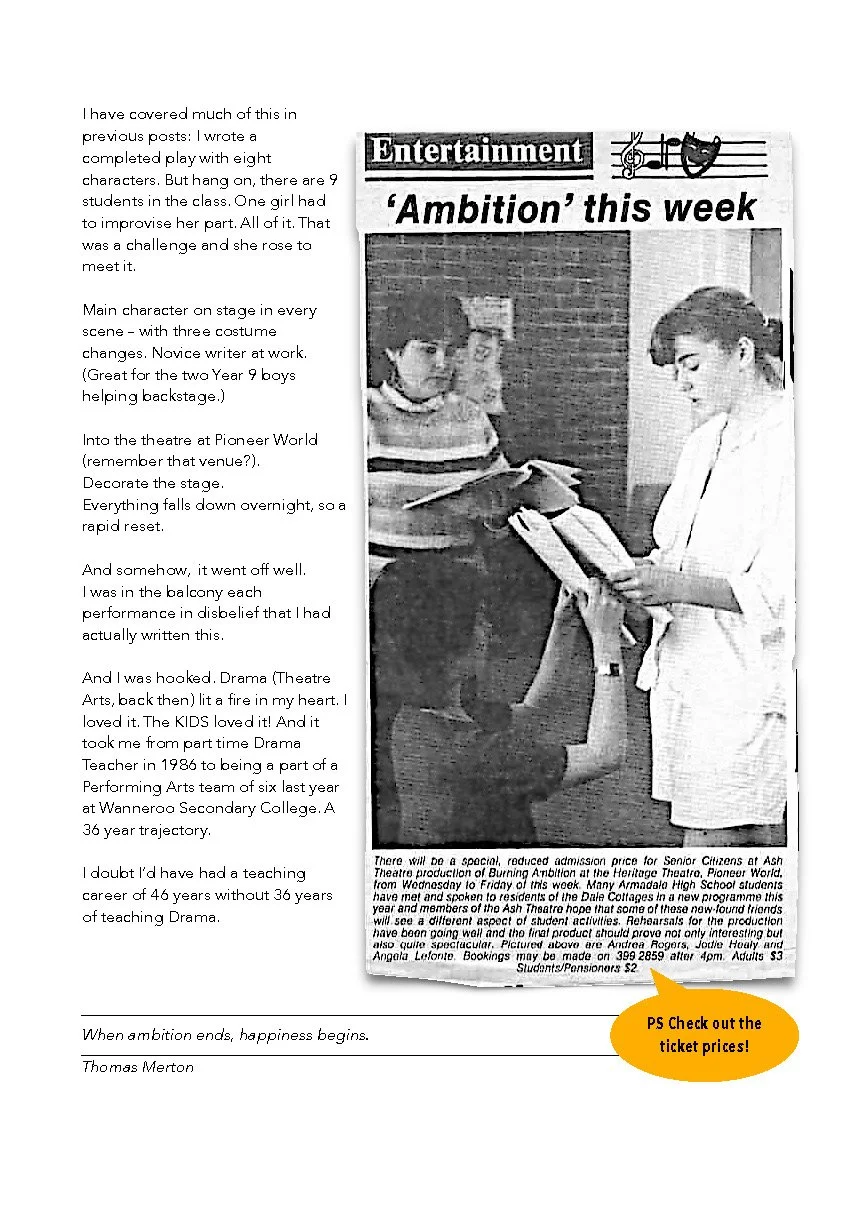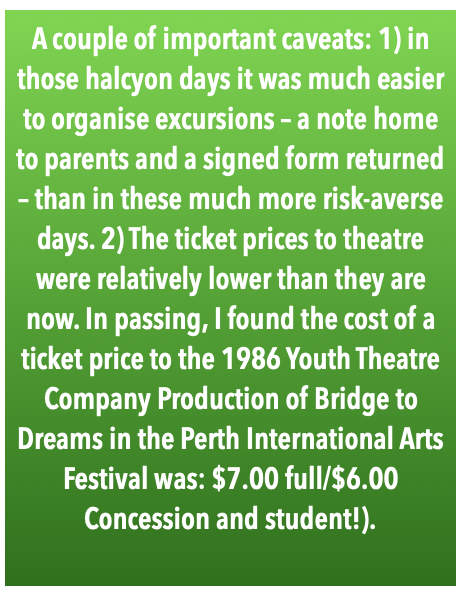Foreman Friday - Masks
/The mask in drama has its double in life.
This is something I wrote in reaction to a comment from a Year 11 student.
—
The Mask I Wear
This mask I wear can be so claustrophobic – it closes in all around me, enveloping me, inhibiting me. It cuts me off from all outside contact. It determines how I must behave and allows little freedom. God help me if it ever becomes moulded to the real me.
Its there so often that I sometimes feel that very little would be needed for the graft to take and I’d be stuck with it.
The expectation of you, the student, for me to act in some specific way, the ideas you pick up about me from someone I taught last year, your conception of how a teacher should behave, all are pressing me against my will, into this idiotic mask.
Why should the mask be more effective than me?
Maybe the only reason I wear it is because, much as I like to, I don’t trust you. Its much easier to allow you to rip into my mask, make fun of it, laugh at it, and to degrade it, because I know that it is only a mask and that I am safely hidden camouflaged, protected.
Perhaps the times I get so upset are when I’ve accidentally allowed my mask to slip and your barbs strike home at me.
I wish the mask wasn’t necessary. I wish I could trust you with me. Life would be so much easier. Instead of being mask to mask we’d be face to face – for I’m sure that you, too, hide yourself behind a false façade.
John Foreman Albany SHS 25.6.80
—
I find it interesting to revisit this piece of reflective writing of the inexperienced teacher that I was back then.
The further I went in my teaching career I found there were groups, classes where there was more of Me. Part of that I guess was the development of that ‘trust’, part was being more comfortable with who I was in front of a class.
That trust in the students to treat me with, I guess, respect came more readily from my Drama classes. And that is perhaps because I gave far more of myself in those classes. Much of what we did was a shared journey.
Do you see me or the mask?
Early on I was a step ahead of the kids. Later I was putting my heart on the line in the scripts I wrote, and the classes grabbed them and happily ran with them. And of course, once there was success before an audience students were vying to be in the class, especially at City Beach. In the rapidly shrinking school I wound up with two classes in Year 10 and a double cast Panto.
At Armadale SHS there was one student who refused a role because he didn’t believe the play was achievable. He was the first to approach me afterwards and admit he was wrong. I found it difficult to trust him with a role later.
There were, of course, some classes – in English, or HASS, or Multi-Media, where a version of the Mask was evident.
Commedia masks from John M Foreman collection
Put your face on…
So, whilst that mask I wore was metaphorical, it was, for all intents and purposes, real. And needed.
Many masks can be ephemeral.
Robin reminded me that my Mother and most of her generation (the females, at least) would never leave the house without ‘putting her face on’.
This ‘mask’ was what she considered a better version of herself, one that she was happier to show the world. Some women would never leave the house, or even the bathroom, without applying their make-up.
Has anything changed in the past sixty, seventy years?
Make-up has changed. As have the ‘masks’ that some apply.
As a long-time lover and collector of masks, when my old email was inundated with spam, I invoked an Italian version in my new address; mymaschere.
What are the masks you wear? In Life? In teaching? In drama teaching?
Which masks do you reveal in drama teaching?


